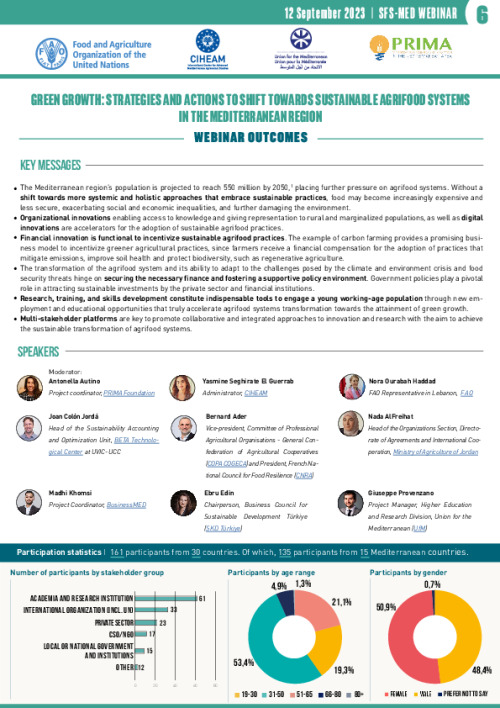Story of change - Albania: investing in agritourism as an engine for shared prosperity
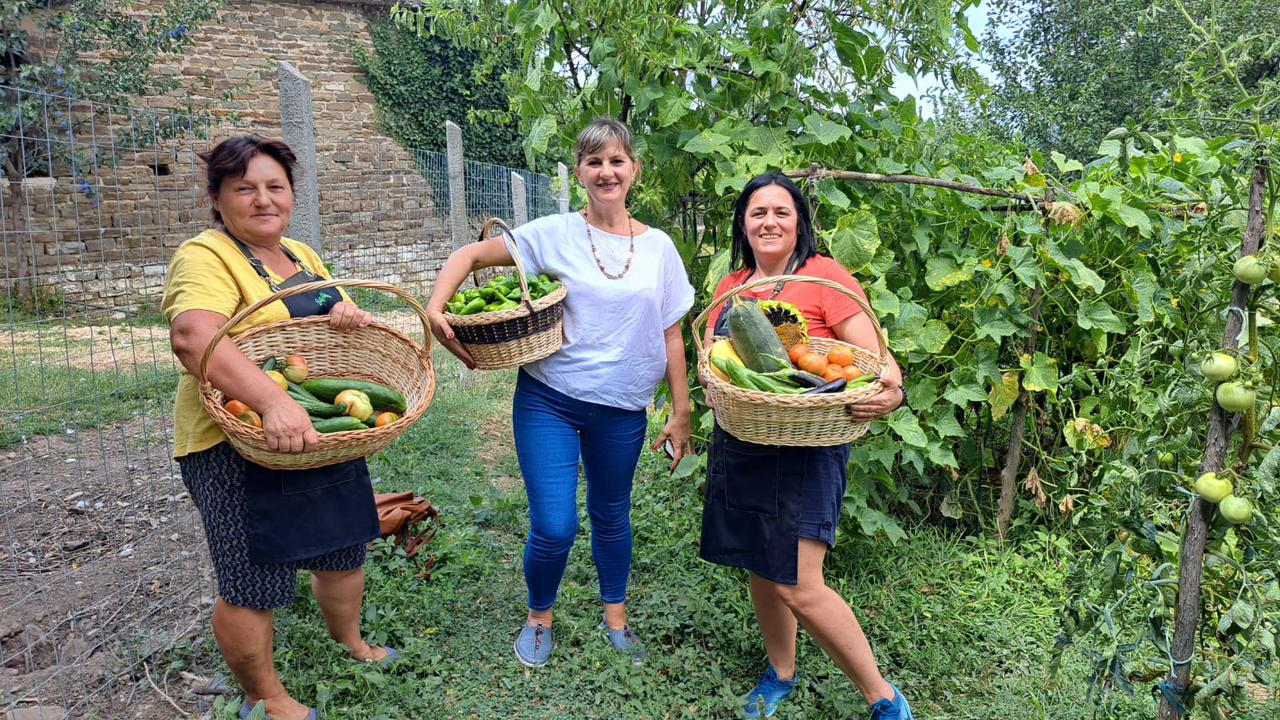
Using a systems approach to bridge the rural-urban gap for equitable, resilient, and sustainable food systems.
Seizing the potential of tourism as a driver of rural development
Albania in recent years has experienced a significant increase in tourism thanks to its natural beauties, uncontaminated landscapes, wealth of biodiversity, and a rich culinary tradition based on diverse agricultural products.
This growth has been accompanied by government policies that promote the conservation of natural resources and biodiversity. An example of this effort is the establishment in 2023 of the Vjosa Wild River National Park, the first of its kind in Europe to be protected by the International Union for Conservation of Nature (IUCN).
In 2020, industries directly related to tourism contributed 3.1 percent1 to Gross Domestic Product (GDP), while the sector’s total contribution - including wider effects from investment and the supply chain - was about 17 percent, according to the World Travel and Tourism Council2.
Incoming tourist flows more than doubled in under a decade, from 4 million in 2016 to 8.4 million in January-October 2023. INSTAT data shows that over 10 million foreign citizens entered the country in 2023.3,4
Albania’s domestic economy and infrastructure are being stimulated to meet the demand of this increasing number of tourists seeking higher amounts of quality local food and related services. Fostering the agritourism sector is a way to address this demand, creating new market opportunities and leveraging its potential as a driver of rural development.
Most agritourism facilities in Albania are based on the farm-to-fork model, with working farms also equipped with restaurants offering traditional cuisine. Conserving agrobiodiversity, protecting indigenous plants, and promoting sustainable and traditional agricultural and food manufacturing practices have therefore become an integral part of the agritourism approach.
Promoting sustainable agritourism among urban consumers will catalyse the development of food systems that provide nutritious food grown through environmentally friendly methods, while also generating opportunities to drive economic expansion and improve incomes and livelihoods in rural areas.
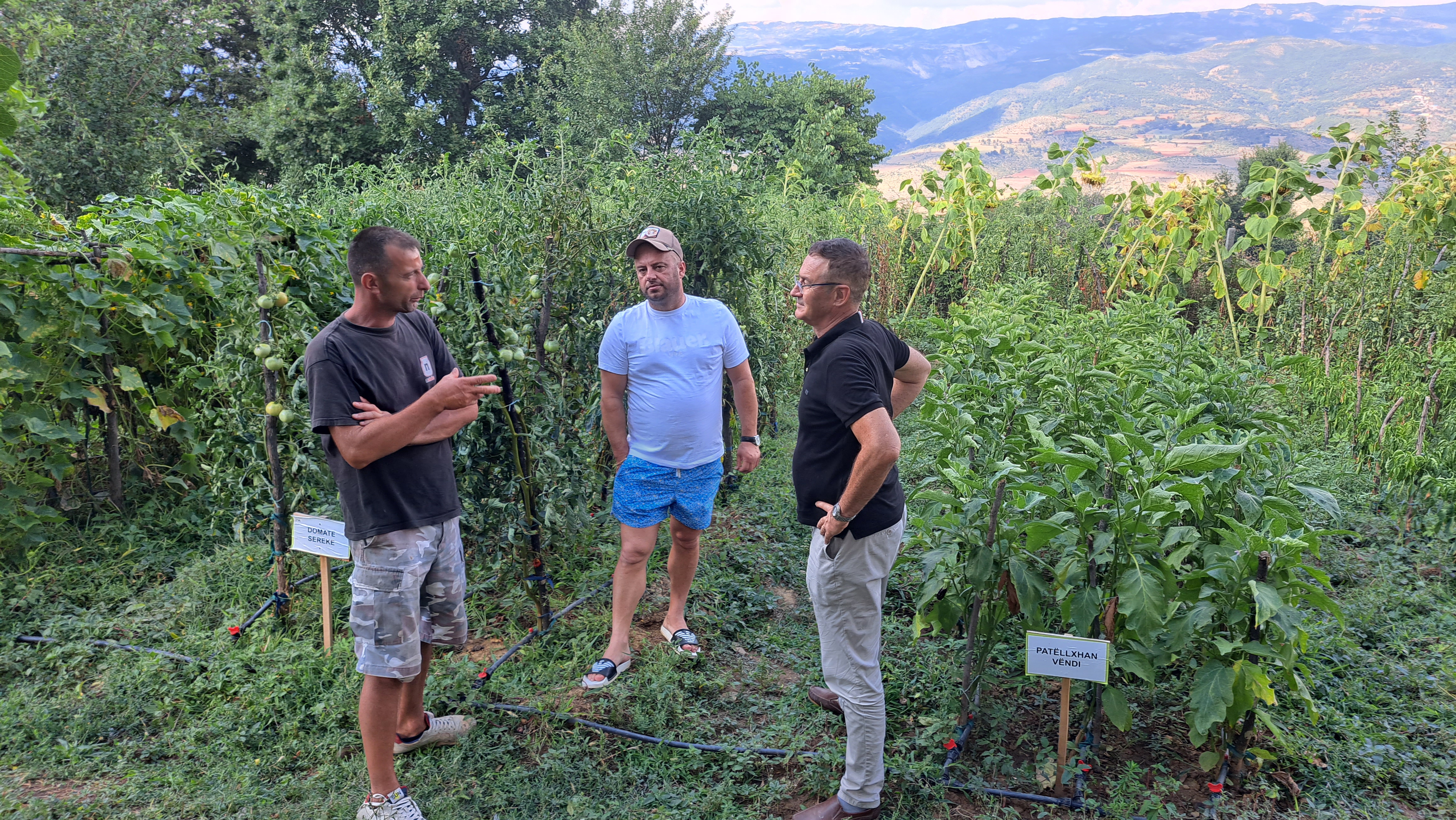
©FAO
The rural-urban gap
Although agriculture makes a significant contribution to the national economy, accounting for 19.3 percent5 of GDP and 33.8 percent6 of the total employment rate, the majority of Albania's economic output is generated by its cities. In 2022, Tirana and Durrës, the two largest cities, contributed 43 percent and 10 percent to GDP, respectively. Overall, urban production is around 11 times greater than rural production, while the population living in cities is only 1.3 times that living in the countryside.
Infrastructure and an adequate labour force are insufficient in rural areas, where an estimated 85 percent7 of the country’s cultivated land is made up of small family farms, with an average size of 1.2 hectares. These constraints lead young women and men to migrate to cities or other countries in search of economic opportunities.
As well, the ageing farm population is struggling to keep up with technological innovations and changing consumer preferences, and despite exemplary cases of agri-entrepreneurs modernising their production practices, the majority of locally grown products still face challenges in meeting safety and quality standards as well as the demands of the market.
Albania’s vision for change
To fill the rural-urban gap and ahead of the 2021 UN Food Systems Summit, Albania’s government elaborated a national pathway that lays out its vision for the future: one of shared prosperity driven by cohesive efforts from all food systems actors to improve rural livelihoods, food security and productivity, deliver safe, quality food that promotes consumer health and wellbeing, and increase the country’s capacity to adapt to climate change.
To achieve this, the national pathway lays out a set of priorities for the next decade: to develop agritourism and short value chains as drivers of rural development; to establish an effective system of food safety, veterinary and plant protection; to guarantee the sustainable use of natural resources and environmental protection; and to enable climate change mitigation and adaptation.
Why a systems approach to tackle agritourism challenges?
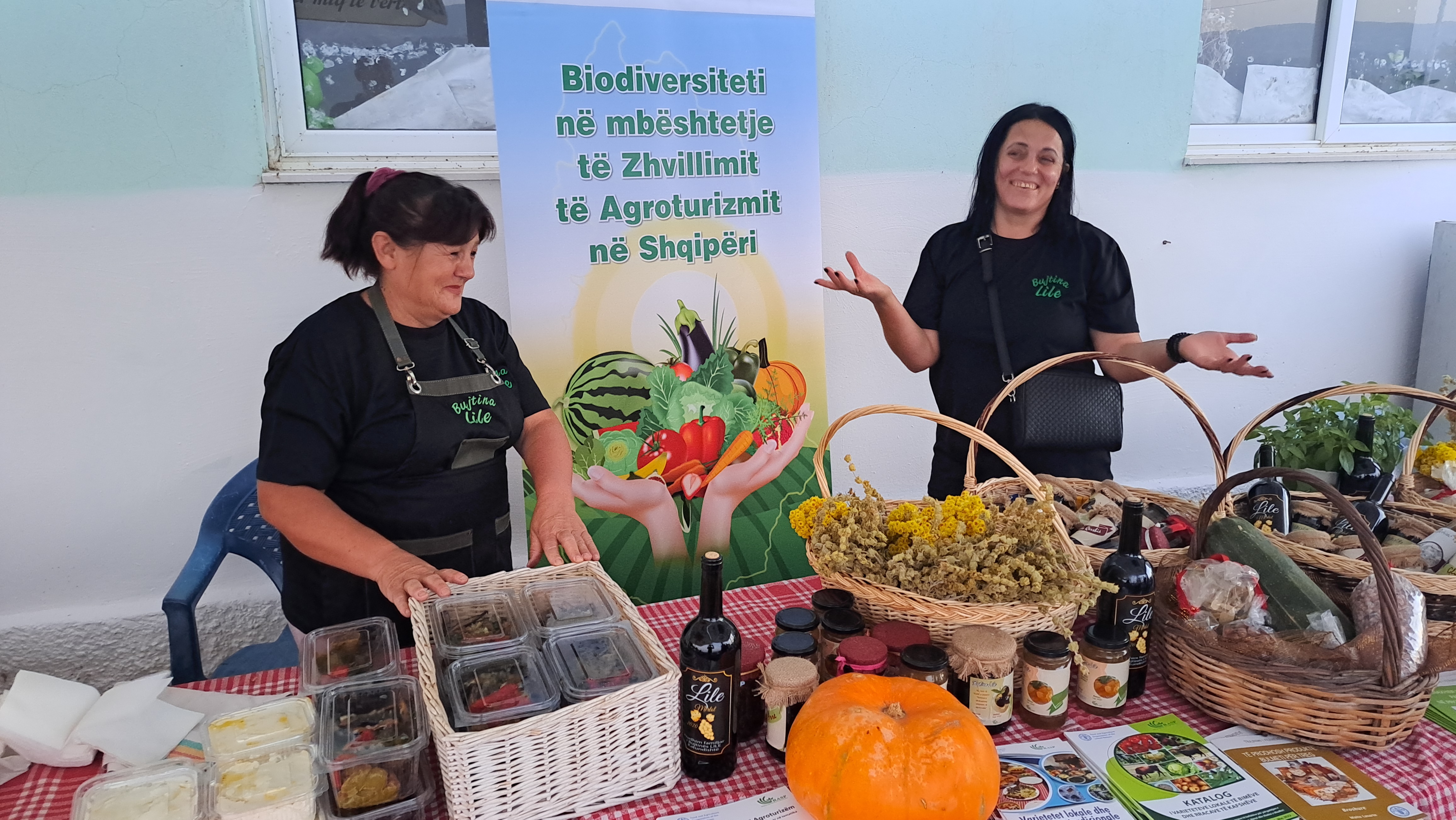
©FAO
Agritourism lends itself to a systems approach because it brings together many interrelated sectors: agriculture, tourism, infrastructure, marketing, food, culture, and local economies.
The systems approach is about bringing together different sectors, stakeholders, and disciplines to arrive at a common understanding of the key blockages to change as well as emerging opportunities for growth, and to jointly devise and implement a set of interrelated actions that can achieve multiple outcomes.
These outcomes include entrepreneurial diversification, branding and marketing local food products, promoting environmentally friendly agriculture, preserving local biodiversity and food traditions, empowering women as innovative agribusiness managers, increasing agricultural literacy, and more.
A systems approach also means foreseeing and mitigating potential unintended consequences, such as the impact of increased tourist traffic on local residents and natural resources, or competition between farms or other related businesses.
Accompanying Albania to bridge the rural-urban gap
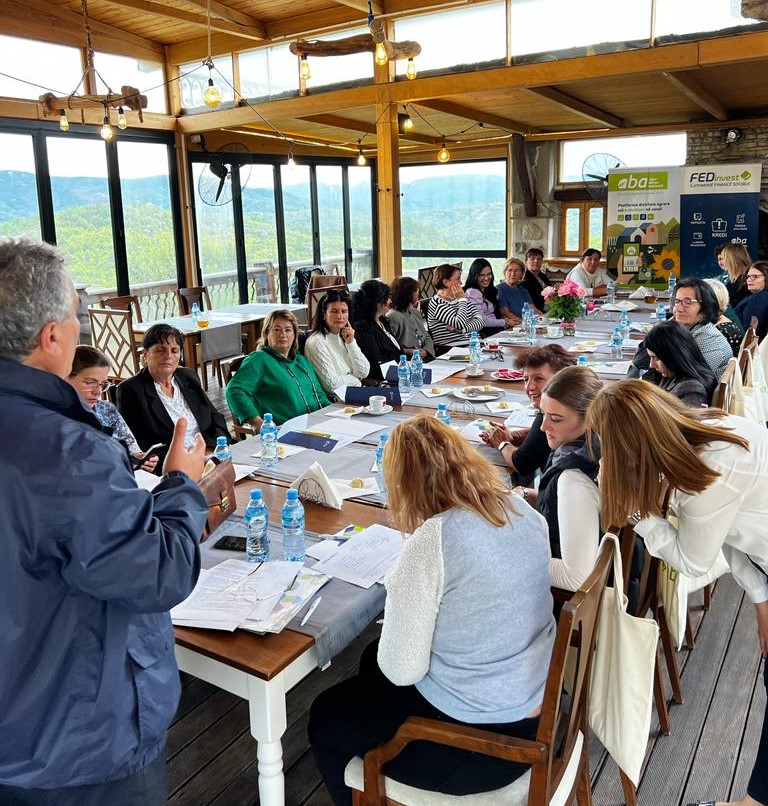
©ABA Online
Starting in 2022, FAO, through the Sustainable Food Systems in the Mediterranean (SFS-MED) initiative, accompanied Albania in its transition, using a systems approach.
As a first step, the SFS-MED project convened local dialogues in the municipalities of Belsh, Permët, and Shkodër that brought together agritourism entrepreneurs, male and female farmers, micro-finance institutions, municipality representatives, agricultural extension service providers, and vocational training institutes, including culinary schools.
Together, they reflected on challenges and opportunities and identified ways to upgrade Albanian agritourism through collaboration across their respective sectors and disciplines. The collective goals were to generate income and produce more diversified foods, in environmentally friendly ways.
The dialogues created a safe and inclusive space in which people felt heard and empowered to voice their concerns and ideas in a publicly recognized platform. They fostered a newfound willingness among diverse stakeholders to navigate their differences, engage in meaningful dialogue, and explore how they can collaborate more effectively.
For example, one of the realisations that emerged from these dialogues is the need for close collaboration between vocational schools, agrifood businesses, and rural communities to equip local youth with the skills to become the agrifood innovators of the future.
“The younger generation has the right attitude to implement better business models, but they lack experience and financing opportunities to start businesses”, comments dialogue participant Eldi Ceco. He runs the ABA Centre, which provides business consulting and advisory services for farmers as well as an online platform and workshops, trainings, and practical demonstrations in the field.
At the same time, this process showcased how national-level processes can be grounded in territorial realities, with greater accountability and agency at the local level. Thanks to these dialogues, the participants worked together to formulate their inputs to a national roadmap for food systems transformation, using agritourism as an entry point.
The roadmap includes improved land tenure schemes, mandatory training to guarantee service quality and environmental standards, support for branding linked to designation of origin labels, and mitigating climate change through, for example, renewable energy, afforestation and the use of drought-resistant plant varieties.
This collective vision was shared with the government at a national consultation that was co-chaired by the Deputy Minister of Agriculture and Rural Development, the UN Resident Coordinator and the FAO Representative in Albania. The consultation was attended by the Ministry of Tourism and Environment as well as representatives from academia, agrifood business operators, civil society, government agencies and the UN.
“The interventions we heard today confirmed that it is a priority to consider agritourism as a vehicle for food systems transformation, given the importance of both tourism and agriculture for our economy. Albania’s food system can be transformed if we are able to innovate, for example through new partnerships, upgraded technologies, and creative educational models”, said Irfan Tarelli, General Director at the Ministry of Agriculture and Rural Development and National Convenor of Albania’s UN Food Systems Summit.
“As a cross-cutting area, agritourism can help us coordinate efforts across different institutions. I welcome platforms like today’s dialogue and the various dialogues that preceded it, which helped unite all stakeholders and guide them into prioritising multiple issues and sustainability dimensions. Platforms like these enable a continued conversation and communication between public agencies, donors, civil society, and business operators” he added.
This process highlighted the significance of building bottom-up and top-down consensus to stimulate collaboration among stakeholders. It also showed the importance of facilitating connections between people, sectors, and levels of governance to find a shared sense of direction that is grounded in the local context.
Shared learning through clusters and more
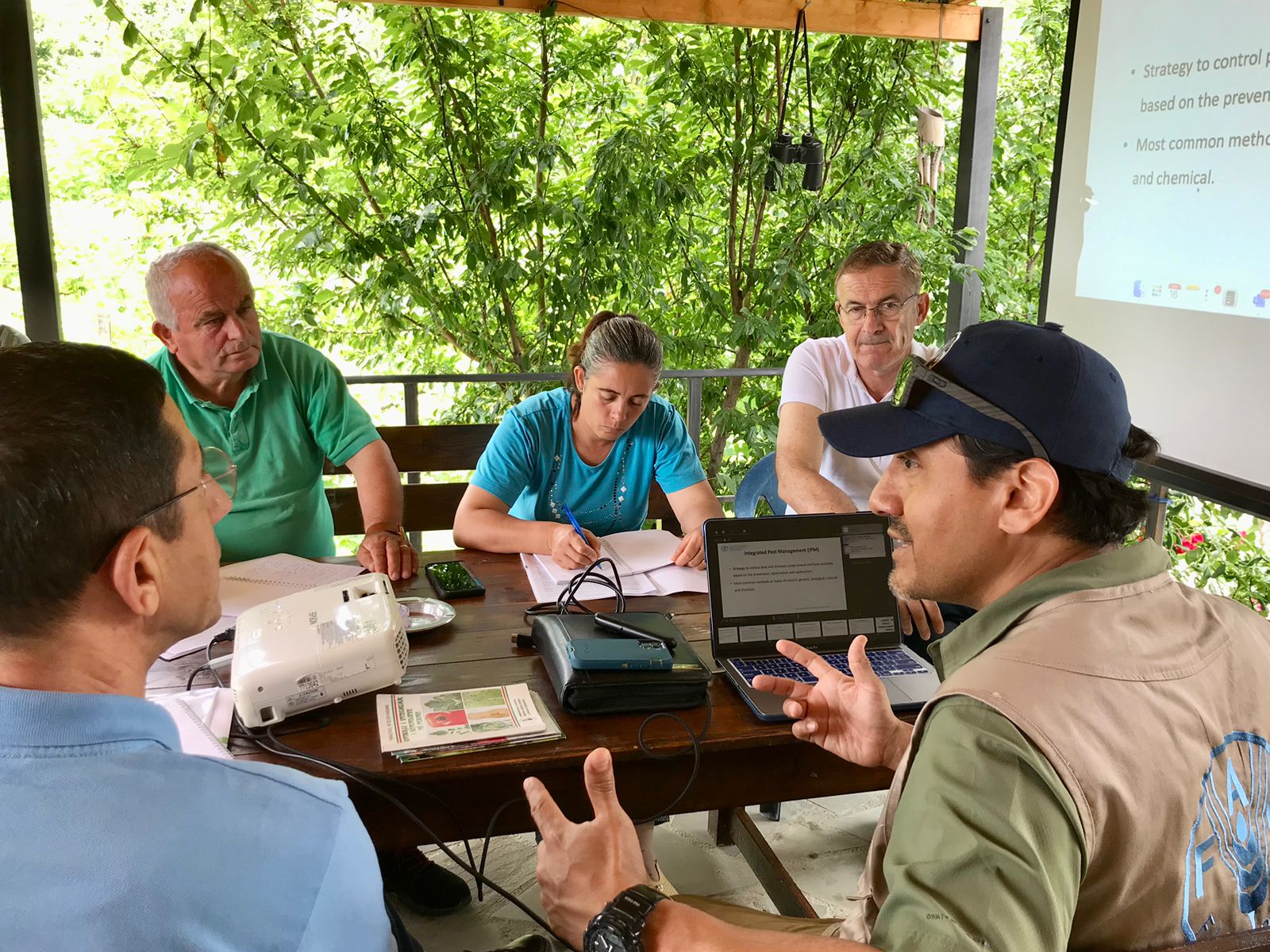
©FAO
The SFS-MED project also facilitated shared learning and enabled networking beyond the meeting room. For example, it piloted one of the actions identified in the collective roadmap, bringing a group of agritourism entrepreneurs together into a production cluster to enhance their methods, improve product quality, and connect with neighbouring farms to supplement each other’s produce.
It did so by linking them with agronomists, a local NGO called the Rural Association Support Programme (RASP), and a seed bank. The cluster members, located in the area of Permet, received training on sustainable farming practices, including reduced water and pesticide use, organic composting, and drip irrigation, and were supported to organise open days at their farms in a bid to seek clients collectively instead of individually.
These open days were instrumental in establishing connections between rural suppliers and urban consumers, while raising awareness about sustainable farming and local plant varieties and food products.
In another example, the SFS-MED project organized a study tour to the southern Puglia region of Italy, where Albanian agritourism entrepreneurs learned how their Italian colleagues combine organic farming with tourism, offering traditional cuisine based on locally sourced ingredients.
The visit also included meetings with representatives from local Italian government and development agencies, who illustrated the importance of a conducive legislative and institutional environment to support collaboration between agritourism entrepreneurs.
What is starting to change
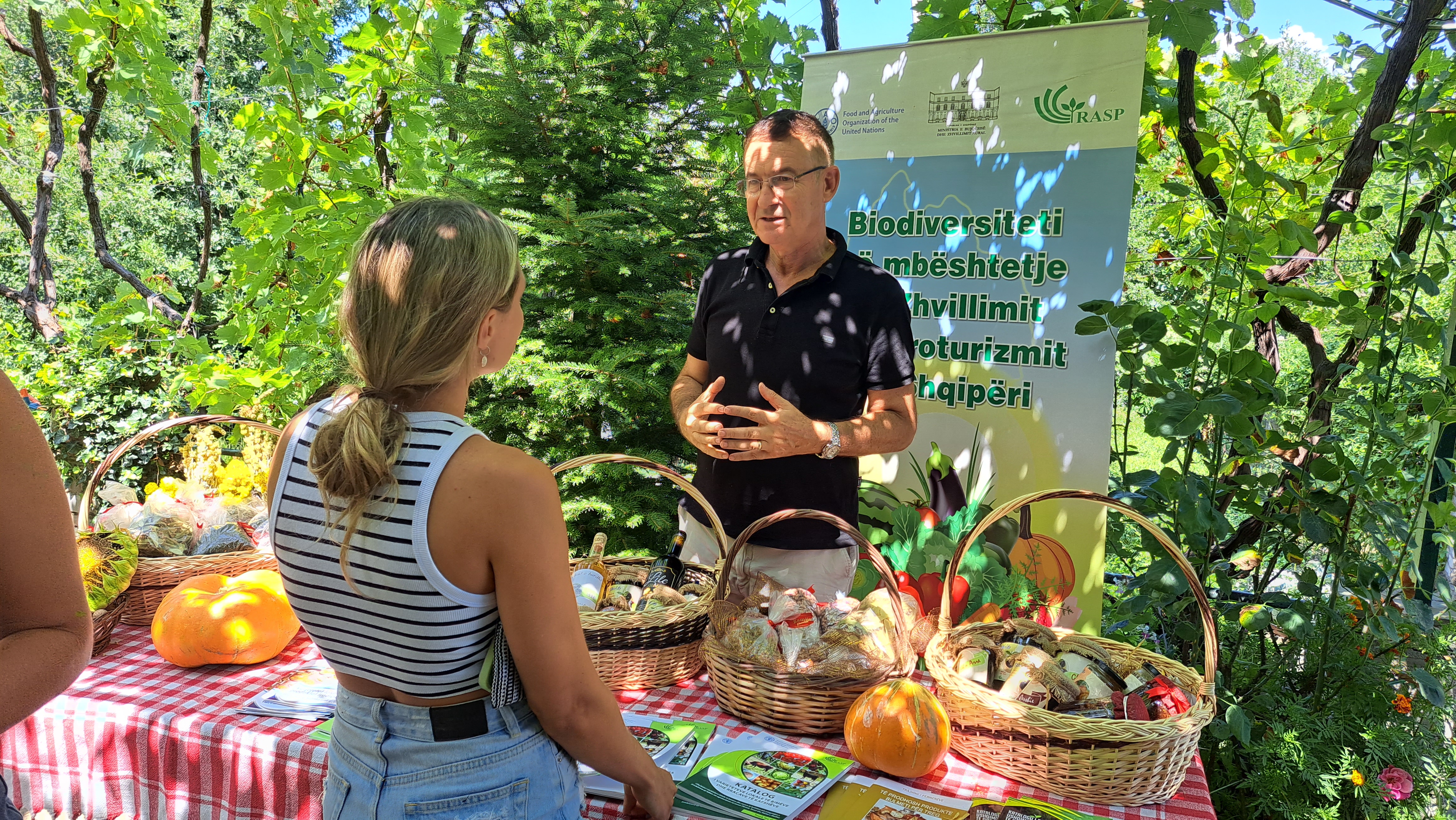
©FAO
For many participants, the local and national dialogues marked the first time they had come together to discuss agrifood systems. This motivated them to get out of their niche sectors and to envision new pathways to sustainable development.
“I learned that agritourism entrepreneurs need to act as guides for farmers in their area: how to produce, what to produce and when it will be needed. So, they should combine their business with the small family businesses around them,” comments Ceco from the ABA Centre.
“This happens already, but it’s sporadic; we must push this more as a business model because there is agritourism potential everywhere in Albania’s rural areas”, Ceco adds.
The Lile family farm and restaurant is an example of a virtuous leader in its local area, which is near the Bënja Thermal Baths in the Vjosa Wild River National Park.
The Liles grow their own fruit and vegetables and serve them in their highly successful country restaurant, which features traditional Albanian and Greek cuisine. The Liles also make wine, gliko, a traditional fruit preserve, and raki, a distilled liquor that is popular in the Balkans and the southern Mediterranean. Their guests hail from all over Albania as well as Italy, Germany, Russia, and the US.
“We buy products from other farmers – milk, cheese, potatoes, maybe eggs when we don’t have them”, recounts Fabja Lile, 18.
The Liles received support from RASP, which provided training on irrigation techniques, reducing pesticide use, composting, networking with other farmers, and increasing their visibility through labelling and showcasing their products in fairs.
“They helped us not just with material things like building a greenhouse so we can grow vegetables year-round – they also helped expand our minds”, Fabja says.
“Until this year, my parents ran their business all on their own. We didn’t know this kind of help was available. Now we are more hopeful, and more open to learning from other organizations”.
Another significant change is the recent establishment within the Ministry of Agriculture and Rural Development of an agritourism department tasked with liaising with the Ministry of Tourism and Environment to implement joint actions, for which the collective roadmap could become a backbone.
Outlook for the future

©FAO
The SFS-MED pilot activities have demonstrated that when smallholder farmers and agri-entrepreneurs adopt improved production and business practices and cooperate in clusters, they can access more profitable markets and offer safer, higher quality products.
The feedback from the field shows that these actors reacted very positively: their livelihoods improved, and their methods became more sustainable.
To support the ongoing transformation, there is a need for continued efforts to use a systems approach to connect stakeholders from different sectors and transcend silos, both at the policy level and in the field. This will require identifying champions with national and local visibility who can provide leadership and advocacy.
As well, conversations with the ministries and local funding agencies are ongoing to mobilise resources to implement some of the priorities in the collective roadmap. These include setting up clusters between the Tirana market and small agritourism farms offering safe, local products.
Another idea is to promote climate-smart, digitally connected pastoralism to safeguard mountain biodiversity and improve the lives of shepherds and their communities through tourist itineraries.
About SFS-MED
The SFS-MED initiative is a forum for multi-stakeholder dialogue and collaboration, a network for strengthening knowledge sharing and capacity building, and a catalyst for regional cooperation on priority themes for sustainable agrifood systems transformation in the Mediterranean.
Its goal is to create a community to leverage and share the knowledge, experience and skills of agrifood systems actors across the Mediterranean region as they implement regional, national and local efforts to transform to more sustainable food systems.
Funded by Italy’s Ministry of Foreign Affairs and International Cooperation, SFS-MED is a partnership between the Food and Agriculture Organization of the United Nations (FAO), the International Centre for Advanced Mediterranean Agronomic Studies (CIHEAM), the Secretariat of the Union for the Mediterranean (UfM) and the Partnership for Research and Innovation in the Mediterranean Area (PRIMA). It is an affiliated project of the One Planet Network Sustainable Food Systems Programme.
[1] INSTAT. 2022. Tourism in Figures Albania 2021. Tiranë, INSTAT. https://www.instat.gov.al/media/11112/tourism-in-figures-albania-2021.pdf
[2] USAID. Fact Sheet: Support for Tourism Development. USAID. https://2017-2020.usaid.gov/albania/news-information/fact-sheets/fact-sheet-support-tourism-development
[3] INSTAT. 2024. Tourism Statistics. In: INSTAT: Institute of statistics. INSTAT. https://www.instat.gov.al/en/themes/industry-trade-and-services/tourism-statistics/#tab2
[4] Euronews Albania. 2024. Albania outperforms all European countries in overnight stays. In: Euronews Albania. Euronews Albania. https://euronews.al/en/albania-outperforms-all-european-countries-in-overnight-stays/
[5] INSTAT. 2022. Produkti i Brendshëm Bruto, 2020. Press release. INSTAT. https://www.instat.gov.al/media/9739/produkti-i-brendsh%C3%ABm-bruto-final-2019-dhe-gjysm%C3%AB-final-2020.pdf
[6] INSTAT. 2021. Tregu i Punës 2020. Press release. INSTAT. http://www.instat.gov.al/media/8293/njoftim-per-media-tregu-i-punes-2020.pdf
[7] FAO. 2020. Smallholders and family farms in Albania. Country study report 2019. Budapest. https://doi.org/10.4060/ca7450en


